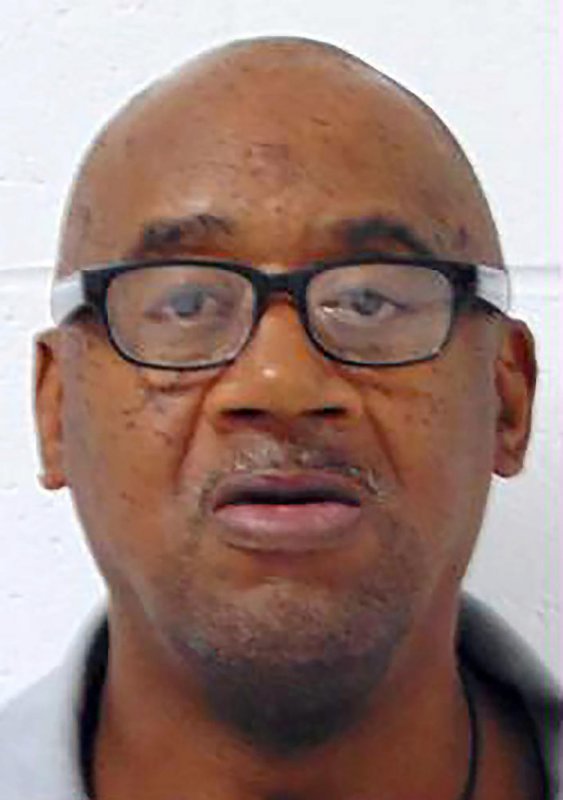Ernest Johnson was executed Tuesday in Bonne Terre, Mo. Photo courtesy of the Missouri Department of Corrections |
License Photo
Oct. 5 (UPI) -- The state of Missouri on Tuesday executed a man convicted of killing three people while robbing a convenience store in 1994 despite multiple high-profile calls for clemency.
Ernest Lee Johnson, 61, died by lethal injection shortly after 6 p.m. on Tuesday at the state prison in Bonne Terre over his conviction in 2005 of using a hammer to kill the three store employees -- Mary Bratcher, 46; Fred Jones, 58; and Mabel Scruggs, 57 -- in Columbia, Mo.
"The state of Missouri has unconstitutionally executed Ernest Johnson," Missourians for Alternatives to the Death Penalty said in a tweet.
The U.S. Supreme Court denied a request for a stay of execution presented to Justice Brett Kavanaugh as his legal team argued IQ tests indicated Johnson has the intellectual capacity of a child and called for the execution to be delayed amid reviews over whether lower courts had considered his disability in line with the Constitution.
In 2015, the Supreme Court granted Johnson a last-minute stay of execution after his attorneys argued that a tumor in his brain would make the lethal injection excessively painful.
Court filings at the time indicated that Johnson is missing as much as 20% of his brain due to surgery to remove much of the tumor. However, his attorneys say, portions of the tumor remain.
Johnson also received brain damage as a result of the surgery and a Supreme Court ruling in 2002 says that executing intellectually disabled people is a violation of the Eighth Amendment's ban on cruel and unusual punishment.
However, Missouri's Supreme Court ruled in August that Johnson's recollections and details of the crime showed he was able "to plan, strategize and problem solve -- contrary to a finding of substantial subaverage intelligence."
In a statement on Monday, Missouri Gov. Mike Parson said the state was "prepared to deliver justice and carry out the lawful sentence."
"Mr. Johnson was tried and convicted for the brutal murder of three innocent victims during a robbery in 1994. The evidence showed Mr. Johnson went to great lengths to plan and conceal his crime," Parson's office said.
"Three juries have reviewed Mr. Johnson's case and recommended a sentence of death. Mr. Johnson's claim that he is not competent to be executed has been reviewed and rejected by a jury and the courts six different times, including a unanimous decision by the Missouri Supreme Court."
Amid the state's plans to move forward with the execution, many advocates called for clemency.
Last week, Pope Francis appealed to the Missouri governor in a letter from Archbishop Christophe Pierre, the Vatican's ambassador to the United States, saying that the pope's appeal was not "based solely upon Mr. Johnson's doubtful intellectual capacity."
"His Holiness wishes to place before you the simple fact of Mr. Johnson's humanity and the sacredness of all human life," the letter stated.
Democratic Reps. Cori Bush and Emmanual Cleaver II, both from Missouri, also asked Parson last week to spare Johnson, saying his execution would be unconstitutional and a "grave act of injustice."
Supporters gathered outside the Boone County Courthouse last week to listen to speeches and testimony supporting calls for clemency.
"At the very least, Gov. Parson can commission a board of inquiry that will allow a group of neutral mental health experts to weigh in on the issue of Ernest Johnson's ability," said Princess Braggs, according to the Columbia Missourian. "He has the power to halt this unconstitutional execution."
"We want to reinforce that we are not urging Gov. Parson to release Ernest Johnson. We are simply saying we would rather have him be sentenced to life in prison," added activist Jeff Stack.
Tuesday's execution was the first in Missouri in 2021 and seventh in the United States.















